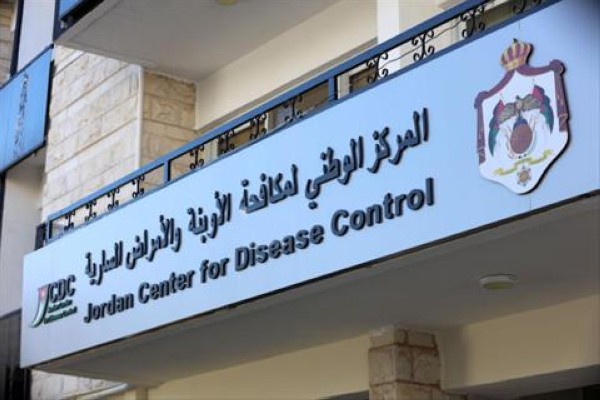Dr. Adel Al-Balbeisi, head of the National Center for Epidemic and Communicable Disease Control, confirmed that Jordan remains free from cholera thanks to continuous monitoring and strict preventive measures.
He told Al-Rai newspaper that the Kingdom has not recorded any cholera cases since 1982, despite outbreaks in several neighboring countries.
Al-Balbeisi explained that Jordan’s health system relies on daily tests and precise laboratory surveillance to proactively detect cholera, analyzing 15 to 20% of diarrhea cases reported at health centers to identify early signs of the disease.
He pointed out that Jordan’s situation differs from other countries, as cholera spreads through fecally contaminated water, but more than 99% of the population receives drinking water through a safe official network. Additionally, the sanitation infrastructure is good, and public hygiene levels are high, all factors that reduce the chances of disease spread.
Al-Balbeisi added that accredited laboratories in the Kingdom test hundreds of samples weekly under surveillance protocols, noting that last week alone more than 300 samples were tested for cholera.
He highlighted ongoing coordination between the Ministry of Health, the Epidemic Center, and the World Health Organization to monitor the regional epidemiological situation and take appropriate measures when needed.
Regarding recommendations for citizens, he stressed the importance of personal and public hygiene and avoiding unsafe or contaminated water, especially in summer when the risk of infectious diseases increases.
Al-Balbeisi explained that Jordan’s preventive surveillance system is among the strongest in the region and is the main factor in maintaining a clean cholera record for over four decades.
A report from the World Health Organization indicated an increase in cholera outbreaks caused by conflict and poverty in many countries.
The organization warned that conflicts, mass displacement, natural disasters, and climate change contribute to cholera spread, especially in rural and flood-affected areas with weak infrastructure.
There were 409,000 cholera cases and 4,738 deaths recorded in 31 countries from early January to August 17 this year, with six countries reporting a mortality rate exceeding 1%.
The WHO confirmed that access to clean drinking water, sanitation, and hygiene remains the only sustainable long-term solution to end the current cholera emergency and prevent future outbreaks.













Recommended for you
Talib Al-Rifai Chronicles Kuwaiti Art Heritage in "Doukhi.. Tasaseem Al-Saba"
Exhibition City Completes About 80% of Preparations for the Damascus International Fair Launch
Unified Admission Applications Start Tuesday with 640 Students to be Accepted in Medicine
Egypt Post: We Have Over 10 Million Customers in Savings Accounts and Offer Daily, Monthly, and Annual Returns
Al-Jaghbeer: The Industrial Sector Leads Economic Growth
His Highness Sheikh Isa bin Salman bin Hamad Al Khalifa Receives the United States Ambassador to the Kingdom of Bahrain